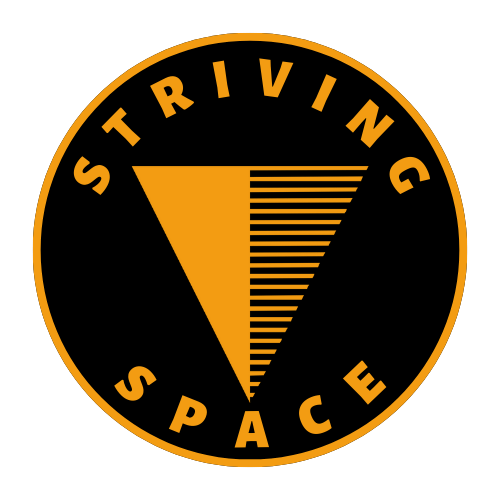Do you find yourself overwhelmed by the number of emails flooding your inbox? Are you finding it difficult to keep pace with leads and stay up-to-date with sales trends? Small businesses often face these challenges due to limited resources and stiff competition from larger corporations, resulting in suboptimal outcomes, inefficiencies, and a lack of progress. But what if there was a solution that could optimize the untapped potential of your data? Enter Artificial Intelligence (AI), which has the power to revolutionize the way small businesses approach sales and achieve growth.
Disclosure: I may earn a small commission if you buy something through my links in this content. This helps support my work, but my opinions and reviews are independent, not influenced by any affiliate partnerships.
AI is not about replacing human sales staff with robots. Instead, it serves as an intelligent sales partner that can analyze vast amounts of data and provide actionable insights to:
- Predict customer behavior: Imagine knowing which leads are most likely to convert before you even pick up the phone.
- Make data-driven decisions: Rely on concrete insights to personalize your approach and maximize each interaction.
- Streamlining your processes: Let AI handle the manual data entry and endless spreadsheets, freeing up your team’s time to focus on what matters.
- Predicting customer behavior: Use your data to uncover hidden patterns, understand your customers better, anticipate their needs, and tailor your communication for maximum impact.
- Automating repetitive tasks: Allow AI to handle routine tasks such as chasing leads, scheduling appointments, and sending follow-up emails. Your sales team can focus on building relationships and closing deals.
We’ll explore the specific applications of AI for sales, providing real-world examples and practical tips to help you implement this powerful tool in your own business.
What is AI in Sales?
Artificial Intelligence (AI) in sales is like having a tireless virtual assistant that can analyze your customer data, predict their needs, and suggest the best sales strategies. It crunches numbers, identifies hidden patterns, and provides actionable insights such as:
- Which leads are more likely to make a purchase.
- The best way to personalize your approach to each customer.
- Hidden trends and opportunities in your data.
AI goes beyond automation by analyzing complex data, understanding customer behavior, and predicting future outcomes. This intelligence guides your decision-making, empowering you to make strategic choices that can deliver real results.
In simpler terms, AI is like having an ultimate research assistant that constantly sifts through your data and presents you with the most valuable insights and recommendations. It’s like a crystal ball for your sales team, providing you with a glimpse into the future and enabling you to make informed decisions that lead to success.
Challenges in Small Business Sales
Small businesses often struggle with limited resources, overflowing inboxes, and a deluge of data, which leads to inefficient sales processes, missed opportunities, and stagnant growth. Salespeople spend only around 23% of their time closing deals due to resource constraints. Manual data entry, scheduling appointments, and sending follow-up emails are time-consuming and repetitive tasks that take away from relationship building and closing deals.
These inefficiencies result in real costs. According to McKinsey & Company, inefficient sales processes can cause a company to lose up to 20% of its potential revenue. However, artificial intelligence (AI) offers a solution. AI automates repetitive tasks, generates actionable insights from data, and predicts customer behavior. It frees up sales teams to focus on their core strengths, analyzes customer data to optimize approaches, and forecasts sales and identifies promising leads.
How AI Streamlines Your Sales Process
It’s possible to streamline your sales process with AI by freeing your sales team from repetitive tasks, appointments, and follow-up emails. AI-powered sales tools can handle data entry, lead generation, and appointment scheduling to save time. Chatbots can qualify leads while algorithms prioritize the most promising prospects. Automated email campaigns and social media engagement platforms can reach wider audiences without manual intervention. Research shows AI can automate up to 40% of sales tasks, freeing up an entire work week per year for each salesperson.
An automated repetitive tasks will helps your sales team to focus on high-impact activities, such as building relationships with qualified leads, personalizing their approach, and closing deals efficiently. This can lead to increased conversion rates, better customer satisfaction, and faster business growth. For example, “Sprout Marketing” implemented an AI-powered lead generation platform to automate the initial qualification process, leading to a 30% increase in conversions and a 20% reduction in sales cycle time.
Traditional sales approaches often rely on experience and intuition, which can lead to missed opportunities and inefficient resource allocation. AI can act as a powerful analytical tool to guide informed decision-making and fuel successful sales strategies. With advanced analytics, AI can uncover hidden patterns and trends in your sales data that might go unnoticed by human eyes. This can enable it to predict customer behavior with remarkable accuracy, including identifying high-potential leads, proactively addressing churn risks, and making informed growth plans.
AI predictions are not magical pronouncements but deliver practical and actionable insights. Imagine having daily reports that highlight promising leads, suggest personalized communication strategies, and even predict the optimal timing for outreach. This data-driven intelligence can equip your sales team with the tools they need to make informed decisions at every step of the sales journey.
What AI Can Do for Sales Performance
Artificial intelligence (AI) is a transformative tool that can improve sales performance in many ways. Let’s explore some specific applications of AI and their potential impact:
Predictive Sales AI:
AI models analyze customer data to identify patterns and predict potential customer churn before it happens. This allows proactive engagement to address concerns and retain valuable clients. AI also identifies customers who are likely to benefit from additional products or services based on their purchase history and other relevant data. This empowers sales teams to personalize their approach and maximize revenue potential. AI also analyzes customer demographics, interactions, and preferences to recommend optimal communication channels and messaging for each individual lead. This personalization increases engagement and conversion rates.
Conversational AI and Chatbots:
- Lead Qualification: Chatbots can engage website visitors, qualify leads by asking targeted questions, and collect valuable data for sales teams to follow up on. This saves time and ensures salespeople focus on promising prospects.
- Appointment Scheduling: AI-powered scheduling tools eliminate the back-and-forth emails and calls by integrating seamlessly with calendars and allowing customers to book appointments directly. This improves efficiency and customer satisfaction.
- 24/7 Customer Support: Chatbots offer immediate assistance to customers outside of business hours, answering basic questions, addressing concerns, and even routing complex issues to human agents. This improves customer experience and brand loyalty.
Monitoring Sales Calls:
- Call Analysis: AI analyzes recordings of sales calls to identify areas for improvement, such as missed opportunities to address customer needs or ineffective communication strategies. This provides valuable coaching insights for salespeople to refine their approach.
- Sentiment Analysis: AI can detect the emotional tone of customer interactions during calls, flagging moments of frustration or dissatisfaction for immediate attention. This allows salespeople to adjust their communication style and address concerns proactively.
Outreach via Email and Social Media:
- Personalized Email Campaigns: AI can segment customer data and create targeted email campaigns with personalized messaging and offers based on individual preferences and purchase history. This increases engagement and click-through rates.
- Automated Social Media Engagement: AI tools can also schedule and publish social media content, respond to comments and messages, and even identify potential leads through social listening. This automates outreach and expands brand reach.
AI can help your sales team work smarter and more efficiently, optimizing communication and ultimately driving significant growth for your small business.
Three AI Sales Tools for Boosting Small Business Performance
Empowering your sales team with the right tools is essential for small businesses seeking sustainable growth. Fortunately, AI has introduced innovative solutions designed to optimize your sales process and close more deals. Here are three popular AI sales tools worth exploring:
1. HubSpot AI:

HubSpot is a comprehensive CRM platform that offers a range of software, tools, and resources to support businesses with various operations such as marketing, sales, customer service, content management, operations, and commerce.
- AI-Powered Lead Generation: Utilize AI-powered tools like conversation bots and social media monitoring to identify qualified leads on websites and social media platforms. These tools automatically engage with potential customers, ask qualifying questions, and score leads based on their interest and fit, ensuring your sales team focuses on the most promising opportunities.
- Predictive Insights & Automation: HubSpot’s AI analyzes your sales data to predict customer behavior, highlight churn risks, and recommend tailored follow-up strategies. This allows your team to prioritize leads effectively, proactively engage at-risk customers, and schedule personalized outreach based on data-driven insights.
- Dynamic Email Campaigns: Craft high-performing email campaigns with the help of AI-powered subject line optimization tools that suggest headlines with the highest likelihood of engagement. Additionally, Sales Hub uses AI to recommend personalized content and offers within your emails based on individual recipient data, increasing conversion rates and driving higher campaign ROI.
- Deal Pipelines & Forecasting: Use AI-powered sales forecasting tools to gain accurate insights into potential deal closure dates and sales pipeline health. This enables proactive resource allocation, informed decision-making, and improved sales forecasting accuracy.
- Conversation Intelligence & Coaching: Analyze recorded sales calls with AI to extract key insights, identify best practices, and uncover missed opportunities. HubSpot provides automated coaching reports based on these insights, allowing your team to refine their approach, strengthen their communication skills, and close more deals.
- AI assistant features in tools: AI assistant features in tools that involve customer data, such as the conversations inbox, are now turned off by default. You can enable them in your HubSpot settings.
HubSpot CRM new features:
- Generate content with AI assistants: This feature is in beta and allows you to generate content, insights, and commands in seconds. You can use it to generate social posts from blog content, create meta descriptions for blog posts, and more.
- Prospecting workspace: This feature is currently in public beta and helps sales reps increase efficiency and focus on customer connection. It provides advanced lead management and reporting, improved clarity for sales leaders, and seamless scheduling and handoffs.
- Lead form routing: This feature is also in public beta and ensures website leads are qualified and routed to the right reps quickly and automatically.
Strengths: Intuitive layout and drag-and-drop functionality make the interface user-friendly, seamless integration with marketing tools, strong reporting and forecasting capabilities.
Weaknesses: The paid version with all features may be pricey for smaller businesses. However, a free version is available, not just a temporary trial.
2. Salesforce Einstein:

Salesforce Einstein is a suite of AI-powered tools designed to help businesses better understand their customers and make data-driven decisions. With Einstein, businesses can leverage predictive analytics to prevent customer churn, drive revenue growth, and improve overall sales performance.
Some of the key features of Salesforce Einstein include:
- Churn Prevention Intelligence: AI-driven upsell and cross-sell recommendations, voice of the customer insights, automated sales forecasting, and conversation insights. Churn prevention intelligence helps businesses identify potential customer churn by analyzing customer activity and predicting dissatisfaction with up to 90% accuracy. This enables proactive engagement to prevent customer loss and retain valuable clients.
- AI-Driven Upsell & Cross-Sell Recommendations: Allowing businesses to personalize their approach by analyzing customer purchase history and preferences. This helps sales teams identify individuals most likely to respond positively to upselling or cross-selling opportunities, maximizing revenue potential.
- Voice of the Customer Insights: Analyzes customer interactions across emails, calls, and social media to uncover trends, preferences, and sentiment. This provides businesses with actionable insights to tailor their messaging, improve customer experience, and build stronger relationships.
- Automated Sales Forecasting: Automated sales forecasting leverages historical data and real-time insights to predict future revenue with remarkable accuracy. This enables precise resource allocation, informed budget planning, and proactive adjustments to maximize sales pipeline health.
- Einstein Conversation Insights: Analyze sales calls with AI to identify critical moments, extract key takeaways, and uncover areas for improvement. Businesses can generate automated coaching reports and share them with individual reps to refine their approach and close more deals.
While Salesforce Einstein offers deep integration with Salesforce data and powerful predictive analytics, it does require an existing Salesforce subscription and has a steep learning curve for some features. However, businesses can take advantage of a free trial available for the Salesforce platform to explore the capabilities of Einstein.
3. Gong:

Gong.io offers AI-powered sales coaching that analyzes sales calls for best practices, missed opportunities, and emotional tone. It automatically generates coaching reports that highlight key moments, providing reps with actionable feedback and improving individual and team performance. Gong provides conversation intelligence and competitor benchmarking, extracting key insights from calls, highlighting competitive messaging, and comparing your sales calls against best practices and industry leaders. This provides data-driven insights to continuously improve your sales approach and gain a competitive edge.
Gong also offers deal intelligence and win/loss analysis. It leverages AI to analyze successful and unsuccessful deals, identifying key patterns and predicting future outcomes with greater accuracy. This allows you to focus on strategies that lead to consistent deal closure and minimize wasted effort.
You can seamlessly integrate Gong with your existing CRM through Gong Revenue Hub Integration. This integration automatically extracts call data, enriches CRM profiles, and provides a unified view of customer interactions across channels. This streamlines workflows, eliminates manual data entry, and improves sales intelligence.
Choosing the Right Tool: A General Approach
When choosing between HubSpot CRM Sales Hub, Salesforce Einstein, and Gong, it’s important to consider your small business’s specific needs and resources. To guide your choice, here’s a general approach:
| AI CRM | Overview |
| HubSpot CRM | This platform is ideal for businesses seeking a comprehensive and user-friendly tool with lead generation, AI-powered insights, and automation features. It’s great for building strong sales pipelines and improving team efficiency. However, HubSpot requires a higher initial investment compared to some alternatives, and some of its features may be overwhelming for very small teams. |
| Salesforce Einstein | If you’re an existing Salesforce user who wants to enhance your platform with AI-powered insights and predictions, Salesforce Einstein is the way to go. It’s strong for churn prevention, upselling, and voice of the customer analysis. However, using Salesforce Einstein requires an existing Salesforce subscription, and integration may be complex for non-technical users. |
| Gong.io | This option is best for teams focused on sales coaching and call analysis. It’s great for improving individual and team performance through detailed feedback and competitive benchmarking. However, Gong.io is priced on a custom basis, which may not be cost-effective for very small teams, and it primarily focuses on call analysis. |
General Recommendations:
HubSpot is the best tool for comprehensive Ai-powered features and ease of use. Salesforce Einstein is the best option for existing Salesforce users who want AI insights. Gong is the best choice for focused coaching and call analysis. The best tool is the one that aligns with your budget, workflow, and specific sales goals. Take advantage of free versions like HubSpot or trials and demos from other platform before making a decision.
How to Get Started with HubSpot Artificial Intelligence in Sales for Small Businesses:

Small businesses can benefit from the power of Artificial Intelligence (AI) to boost sales and achieve their goals. Here’s a practical guide to help you get started, using HubSpot as an example, because it is user-friendly and recommended for small businesses:
1. Define Your Objectives:
Before using AI, identify your specific sales goals. Do you want to:
- Attract new customers?
- Increase online orders?
- Personalize promotions and customer interactions?
Having a clear understanding of your desired outcomes will guide your choice of AI tools and ensure efficient implementation.
2. Assess Your Resources:

Evaluate your budget and existing resources. HubSpot offers a free CRM with basic AI features like email scheduling and lead scoring. Consider investing in paid plans for deeper insights and automation as your business grows and your comfort level with AI increases.
3. Get Started with HubSpot’s AI Tools:
Get the free version of HubSpot AI-powered CRM and continue the steps. HubSpot offers various AI-powered tools to streamline your sales process:
- Conversation bots: Qualify leads, answer FAQs, and book appointments 24/7, freeing up your human sales team for more complex interactions.
- Predictive analytics: Identify potential customers most likely to purchase, predict future orders, and personalize offers accordingly.
- Email automation: Create personalized email campaigns based on individual customer preferences and behaviors, boosting engagement and click-through rates.
4. Start Small and Scale Up:
Don’t overwhelm yourself! Begin by implementing one or two AI tools, like email automation or social media scheduling. This allows you to learn the ropes, build confidence, and refine your approach before expanding further.
5. Prioritize Data Quality:
Remember, AI thrives on accurate and organized data. Ensure your customer information is complete and up-to-date to feed the AI engine effectively and produce insightful results.
6. Remember the Human Touch:
AI is a valuable tool, but it’s crucial to remember that your sales team plays a critical role in building lasting customer relationships. Use AI insights to guide your interactions, personalize your approach, and create genuine connections with your customers.

Addressing Concerns:
It’s natural to have concerns about job displacement and data privacy when considering AI. However, AI can often complement existing roles by automating repetitive tasks, freeing up time for human talent to focus on higher-level activities. Choose trusted tools with robust security measures and prioritize transparency with your customers about data usage.
The Takeaway: A Brighter Future for Small Businesses with AI-Powered Sales
Getting started with AI in sales doesn’t have to be complicated. Take the baby steps approach, utilizing available resources like HubSpot, and focusing on both AI insights and human connection, you can empower your small business to achieve remarkable sales success.
The future of sales shines brighter than ever with AI in the picture. Imagine streamlined workflows, data-driven decisions, and smarter selling strategies – all within your reach. AI has the potential to revolutionize the way small businesses connect with customers and close deals. It can boost sales with precision, nurture customer relationships, prevent churn, and automate repetitive tasks. AI is not here to replace human sales talent, but to empower the team to work more effectively. It’s time to leverage your business with this transformative technology, achieve unprecedented levels of sales effectiveness and propel the business towards sustained growth.












